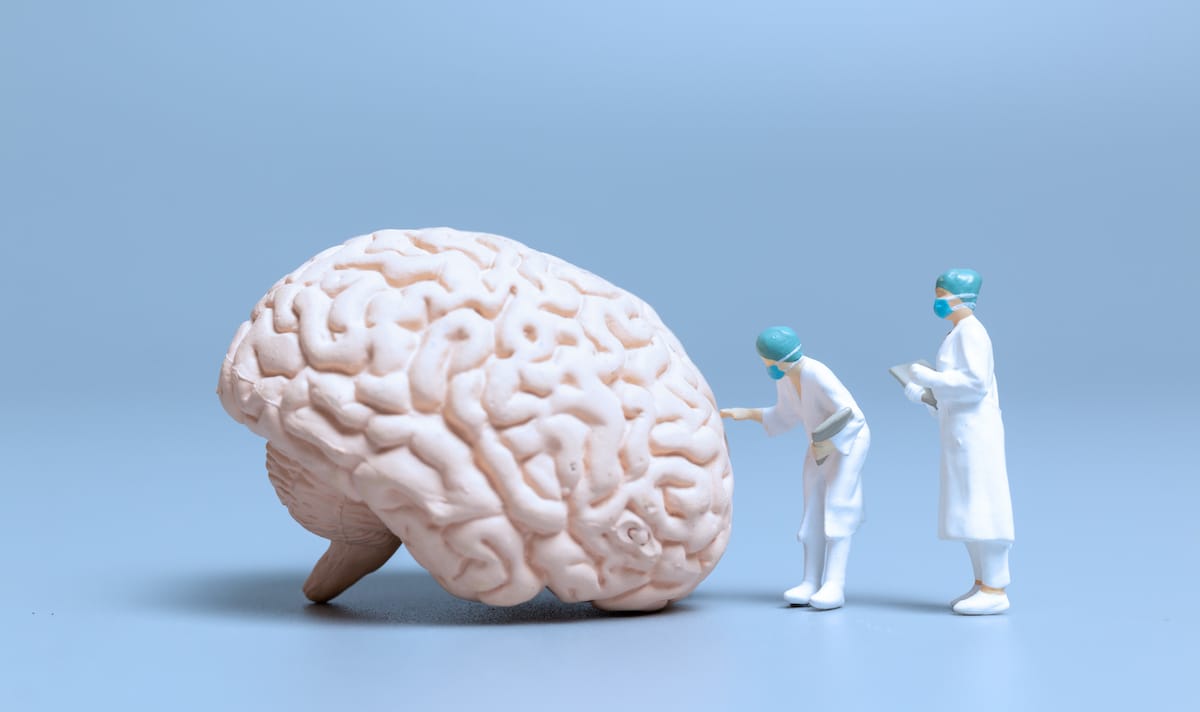How two common viruses can lead to the onset of Alzheimer's
- Replies 8
Learning about the ins and outs of Alzheimer's can be draining, whether you’re worried you have symptoms, you have a family history or you are simply trying to educate yourself on the disease. We’re often told that the risk of developing the disease increases as we age and that people with a family history of diagnosis are more likely to receive the diagnosis themselves.
In addition to that, we’re told that some of our actions can also influence our susceptibility. Sustaining a head injury, excessive drinking, high blood pressure, and a vitamin D deficiency are among the many factors that could make one more prone to the disease. But now, researchers have identified something that we have no influence over.
Researchers from Tufts University and the University of Oxford discovered an answer – building on a theory that has been put to the test for over 20 years.
With the help of a 3D human tissue culture model that mimics the brain, the researchers demonstrated how two common viruses could cause Alzheimer’s.

Researchers could be a step closer to preventing Alzheimer’s. Source: Roche
They found that varicella-zoster virus (VZV), which is the main culprit behind chickenpox and shingles, may trigger herpes simplex (HSV-1), a common virus that causes cold sores, to set in motion the early stages of the disease.
The researchers detailed that HSV-1 is typically dormant within the neurons of the brain, ‘but when activated, it leads to accumulation of tau and amyloid beta proteins and loss of neuronal function.’
In the medical field, tau and amyloid beta proteins are ‘signature features’ found in patients with Alzheimer’s. Tau protein has gained a reputation for its association with several brain diseases. The build-up of tau and amyloid beta proteins in the brain is typically used to measure the stage and severity of Alzheimer’s.
The good news is that a 2021 population-based study suggested that while HSV-1 can cause cognitive decline, it doesn’t directly cause dementia.
The scientists from Oxford and Tufts clarified that the relationship between these two viruses served as one pathway (possibly several) leading to the disease.
‘Our results suggest one pathway to Alzheimer’s disease, caused by a VZV infection, which creates inflammatory triggers that awaken HSV in the brain,’ said Dr Dana Cairns, a research associate in Tufts’ Biomedical Engineering Department.
‘While we demonstrated a link between VZV and HSV-1 activation, it’s possible that other inflammatory events in the brain could also awaken HSV-1 and lead to Alzheimer’s disease.’
The experiment also served as an investigation of the cause-and-effect relationship between the two viruses and Alzheimer’s disease. To study this, they created ‘brain-like environments’ in small, doughnut-shaped sponges made of silk protein and collagen.

The researchers created ‘brain-like environments’. Source: NR Times
The sponges were populated with neural stem cells ‘that grow and become functional neurons capable of passing signals to each other in a network, just as they do in the brain.’
The researchers found that the grown neurons in the brain tissue could be infected with VZV, ‘but that alone did not lead to the formation of tau and amyloid beta proteins.’
In fact, the neurons continued to function normally… But the problem starts when the neurons harbour dormant HSV-1.
‘The exposure to VZS led to a reactivation of HSV-1, and a dramatic increase in tau and beta-amyloid proteins. Because of this, the neuronal signals begin to slow down.’
Dr Cairns described the process as ‘a one-two punch’.
Crucially, the link between HSV-1 and Alzheimer’s disease ‘only occurs when HSV-1 has been reactivated to cause sores, blisters, and other painful inflammatory conditions’.
The researchers suggest that ‘repeated cycles’ of HSV-1 activation can lead to more inflammation in the brain, production of plaques, and accumulation of neuronal and cognitive damage. And the disease builds up from there.
What are your thoughts on this revelation? Do you think this could be a breakthrough in Alzheimer’s research? Let us know in the comments!
Learn more about a similar theory by watching the video below:
Source: CBS Philly
In addition to that, we’re told that some of our actions can also influence our susceptibility. Sustaining a head injury, excessive drinking, high blood pressure, and a vitamin D deficiency are among the many factors that could make one more prone to the disease. But now, researchers have identified something that we have no influence over.
Researchers from Tufts University and the University of Oxford discovered an answer – building on a theory that has been put to the test for over 20 years.
With the help of a 3D human tissue culture model that mimics the brain, the researchers demonstrated how two common viruses could cause Alzheimer’s.
Researchers could be a step closer to preventing Alzheimer’s. Source: Roche
They found that varicella-zoster virus (VZV), which is the main culprit behind chickenpox and shingles, may trigger herpes simplex (HSV-1), a common virus that causes cold sores, to set in motion the early stages of the disease.
The researchers detailed that HSV-1 is typically dormant within the neurons of the brain, ‘but when activated, it leads to accumulation of tau and amyloid beta proteins and loss of neuronal function.’
In the medical field, tau and amyloid beta proteins are ‘signature features’ found in patients with Alzheimer’s. Tau protein has gained a reputation for its association with several brain diseases. The build-up of tau and amyloid beta proteins in the brain is typically used to measure the stage and severity of Alzheimer’s.
The good news is that a 2021 population-based study suggested that while HSV-1 can cause cognitive decline, it doesn’t directly cause dementia.
The scientists from Oxford and Tufts clarified that the relationship between these two viruses served as one pathway (possibly several) leading to the disease.
‘Our results suggest one pathway to Alzheimer’s disease, caused by a VZV infection, which creates inflammatory triggers that awaken HSV in the brain,’ said Dr Dana Cairns, a research associate in Tufts’ Biomedical Engineering Department.
‘While we demonstrated a link between VZV and HSV-1 activation, it’s possible that other inflammatory events in the brain could also awaken HSV-1 and lead to Alzheimer’s disease.’
The experiment also served as an investigation of the cause-and-effect relationship between the two viruses and Alzheimer’s disease. To study this, they created ‘brain-like environments’ in small, doughnut-shaped sponges made of silk protein and collagen.
The researchers created ‘brain-like environments’. Source: NR Times
The sponges were populated with neural stem cells ‘that grow and become functional neurons capable of passing signals to each other in a network, just as they do in the brain.’
The researchers found that the grown neurons in the brain tissue could be infected with VZV, ‘but that alone did not lead to the formation of tau and amyloid beta proteins.’
In fact, the neurons continued to function normally… But the problem starts when the neurons harbour dormant HSV-1.
‘The exposure to VZS led to a reactivation of HSV-1, and a dramatic increase in tau and beta-amyloid proteins. Because of this, the neuronal signals begin to slow down.’
Dr Cairns described the process as ‘a one-two punch’.
Crucially, the link between HSV-1 and Alzheimer’s disease ‘only occurs when HSV-1 has been reactivated to cause sores, blisters, and other painful inflammatory conditions’.
The researchers suggest that ‘repeated cycles’ of HSV-1 activation can lead to more inflammation in the brain, production of plaques, and accumulation of neuronal and cognitive damage. And the disease builds up from there.
What are your thoughts on this revelation? Do you think this could be a breakthrough in Alzheimer’s research? Let us know in the comments!
Learn more about a similar theory by watching the video below:
Source: CBS Philly







